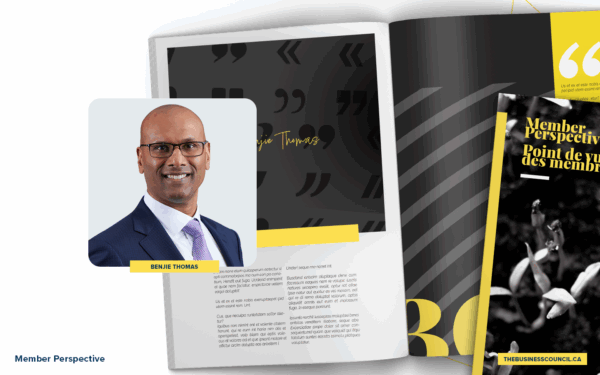The path to economic reconciliation
JP Gladu is president and CEO of Canadian Council for Aboriginal Business. Goldy Hyder is president and CEO of the Business Council of Canada
On Jan. 30, Cenovus Energy Inc. pledged $50-million over five years to build badly needed new homes in six First Nations and Métis communities close to its oil sands operations in northern Alberta. The company also pledged to develop training programs for local residents, provide scholarships for Indigenous youth and spend at least $1.5-billion with Indigenous-owned and -operated businesses over the coming decade.
Cenovus chief executive Alex Pourbaix called the initiative “an important way to contribute to reconciliation with Indigenous peoples,” and it is certainly that.
But it is also part of a welcome, if underappreciated, trend toward deeper and more meaningful engagement between Indigenous communities and corporate Canada.
Consider these examples:
- Bedford, N.S.-based Clearwater Seafoods Inc., one of North America’s largest seafood companies, announced a landmark agreement in March, 2019, with 14 First Nations in Nova Scotia and Newfoundland. The 50-year partnership to develop the Arctic surf clam fishery will provide jobs and millions of dollars in benefits through revenue-sharing, training and procurement from Indigenous suppliers.
- Suncor Energy Inc., Canada’s largest integrated energy company, has forged equity partnerships with First Nations communities in Quebec and Alberta. The latter – the $503-million acquisition of a 49-per-cent stake in a major oil sands project by the Fort McKay and Mikisew Cree First Nations in 2017 – represents the largest business investment to date by a First Nations entity in Canada. Suncor is also a leading purchaser of goods and services from Indigenous-owned businesses. In 2018, the company spent $703-million on direct purchases from 83 Indigenous suppliers and contractors. That’s roughly 10 times what the federal government spends in a typical year on procurement from Indigenous-owned firms.
- Horizon North Logistics Inc., a Calgary-based provider of industrial services and modular construction solutions, has established 30 partnerships with Indigenous communities across the country. Nationally, 14 per cent of the company’s employees identify as being of Indigenous descent.
- Fortis Inc., a Newfoundland-based electric-utility holding company, has partnered with 24 First Nations communities to develop, own and operate 1,800 kilometres of transmission lines in northwestern Ontario. The project – 51-per-cent owned by First Nations – will connect remote communities to the provincial grid, eliminating the need for diesel generation.
- To date, Indigenous businesses have won $620-million in contracts to help build Coastal GasLink, a proposed 670-km pipeline that will carry natural gas from northeastern British Columbia to the coast, supplying the planned LNG Canada export terminal in Kitimat, B.C. (The project is currently the subject of a dispute between 20 First Nations that have negotiated agreements with Coastal GasLink and the hereditary chiefs of the Wet’suwet’en people, who say the project has no authority without their consent.)
- In what many see as a turning point for Indigenous economic development in Canada, three different Indigenous investor groups have lined up financing to purchase a majority stake in the $13-billion Trans Mountain (TMX) pipeline. “Majority Indigenous ownership of TMX will make a difference,” says Delbert Wapass, executive chair and founder of one of the groups, Project Reconciliation. Proponents say Indigenous ownership of the pipeline would create generational wealth for Indigenous peoples in Canada, while improving social conditions and enhancing environmental protection.
Through projects and partnerships such as these, Indigenous peoples are reclaiming their rightful place in all corners of the fabric of Canada, including in business. Today, the Indigenous economy contributes an estimated $31-billion to Canada’s gross domestic product. At its current rate of growth, it has the potential to reach $100-billion in the next five years.
Strong relationships between Indigenous communities and the broader business community contribute to a stronger and more equitable Canadian economy. They lift people out of poverty, creating hope and opportunities for current and future generations – opportunities that cannot be realized when communities rely on government as their sole source of revenue. The Crown will always have fiduciary obligations toward Indigenous people, but that alone does not enable self-determination. Only by embracing economic development can communities achieve greater independence and self-sufficiency.
For their part, progressive companies are learning that when they meaningfully engage with Indigenous communities and facilitate the growth of Indigenous businesses, everyone wins. Procuring goods and services from Indigenous businesses helps to ensure more competitive markets, creates valuable new training opportunities, and improves social and economic outcomes for the wider community. It also builds trust and enhances opportunities for knowledge-sharing. As Enbridge Inc. CEO Al Monaco puts it, “When engagement is done effectively, Indigenous expertise leads to better environmental, cultural and economic outcomes.”
And when Indigenous communities participate as equity owners, they become champions of those projects, which creates certainty and drives further investment and growth. This is the path to true economic reconciliation.










